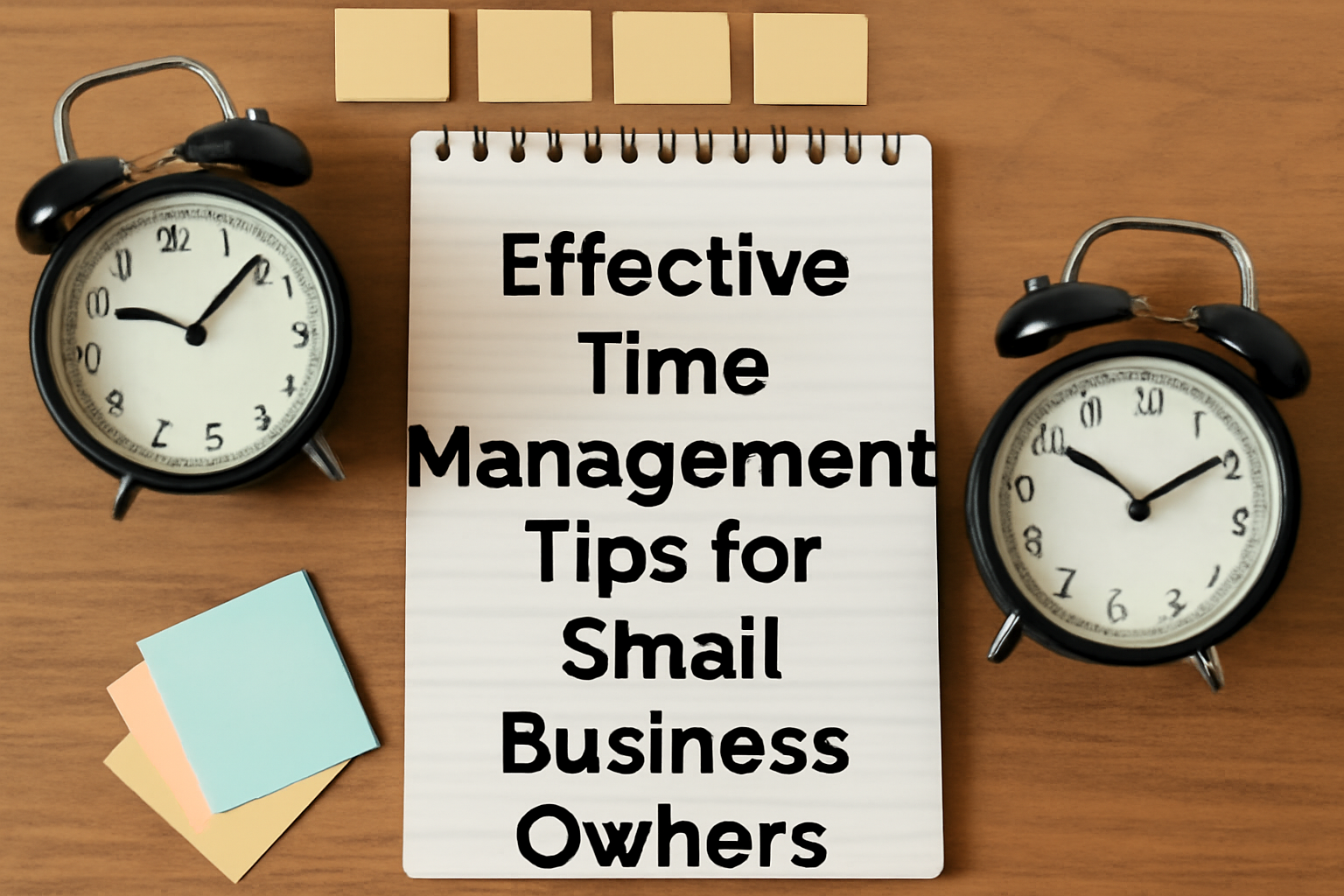As a small business owner, managing time effectively can be a challenge. There are so many tasks to juggle—from managing employees to overseeing marketing, sales, and customer service—that it can feel like there’s never enough time in the day. But with the right strategies, you can increase your productivity and ensure that you’re focusing on the activities that drive your business forward. Here are some practical time management tips to help small business owners stay on track.
1. Prioritize Tasks Using the Eisenhower Matrix
The Eisenhower Matrix is a time management tool that can help you categorize tasks based on urgency and importance. It divides tasks into four quadrants:
- Urgent and Important: Tasks that need immediate attention, like addressing customer complaints or dealing with financial issues.
- Important, but Not Urgent: Tasks that are important for long-term success, such as planning your business strategy or improving your product.
- Urgent, but Not Important: Tasks that require immediate attention but don’t significantly impact your business, such as responding to non-critical emails.
- Neither Urgent nor Important: Tasks that don’t add value, like browsing social media or organizing files that don’t need immediate attention.
By categorizing tasks this way, you can focus on what truly matters and delegate or eliminate the rest.
2. Set Clear and Achievable Goals
Setting clear, achievable goals is crucial for managing your time. Use the SMART framework (Specific, Measurable, Achievable, Relevant, and Time-bound) to break down your goals into smaller, manageable tasks. Instead of vague goals like “increase sales,” try something more concrete, such as “increase sales by 15% over the next quarter.” This gives you a clear focus and helps you stay on track.
3. Batch Similar Tasks Together
One way to save time is by grouping similar tasks together. For instance, set aside specific time slots for tasks like answering emails, making phone calls, or handling administrative duties. This way, you won’t waste time constantly switching between different types of tasks. Task batching can increase your efficiency and allow you to focus on one thing at a time.
4. Delegate and Outsource When Necessary
As a small business owner, it’s tempting to try to do everything yourself, but this can quickly lead to burnout. If you’re juggling too many tasks, consider delegating or outsourcing some of them. For example, you could hire a virtual assistant to handle scheduling or outsource your social media management to a freelancer. By freeing up your time from non-core activities, you can focus on the areas that will drive your business’s growth.
5. Automate Repetitive Tasks
Automation can save you a significant amount of time. There are various tools available to automate repetitive tasks such as invoicing, email marketing, and social media posting. For example, you can use software like Mailchimp for email campaigns or Buffer for scheduling social media posts. Automating these processes ensures that you’re not spending valuable time on mundane tasks, allowing you to focus on more strategic work.
6. Implement Time Blocking
Time blocking is a productivity strategy where you allocate specific chunks of time for certain tasks. For example, you might block off the first two hours of your day for strategic planning, followed by an hour for answering emails and customer queries. By structuring your day in this way, you can avoid distractions and ensure that you’re dedicating enough time to important tasks without feeling overwhelmed.
7. Limit Distractions and Set Boundaries
Distractions are one of the biggest time-wasters in a small business. Whether it’s phone calls, emails, or social media notifications, these interruptions can add up and prevent you from completing tasks efficiently. Set boundaries by scheduling “distraction-free” time where you focus solely on your work. Turn off your phone, silence unnecessary notifications, and let others know when you’re unavailable.
8. Use Tools to Track Your Time
Time tracking tools can help you stay accountable and identify areas where you’re spending too much time. Tools like Toggl or RescueTime track how much time you spend on different tasks, giving you valuable insights into your work habits. Use these insights to optimize your time management and ensure you’re using your time efficiently.
9. Review Your Progress Regularly
Take the time to regularly review your progress. Ask yourself whether you’re meeting your goals and staying on track with your priorities. If you’re falling behind, figure out why and adjust your strategies accordingly. Regular reviews help you stay aligned with your objectives and make necessary adjustments to stay on course.
Conclusion
Effective time management is crucial for small business owners who want to increase productivity and reduce stress. By prioritizing tasks, setting clear goals, delegating, and using automation tools, you can maximize your efficiency and focus on what matters most. Implement these strategies, and you’ll soon find yourself with more time to grow and scale your business.
